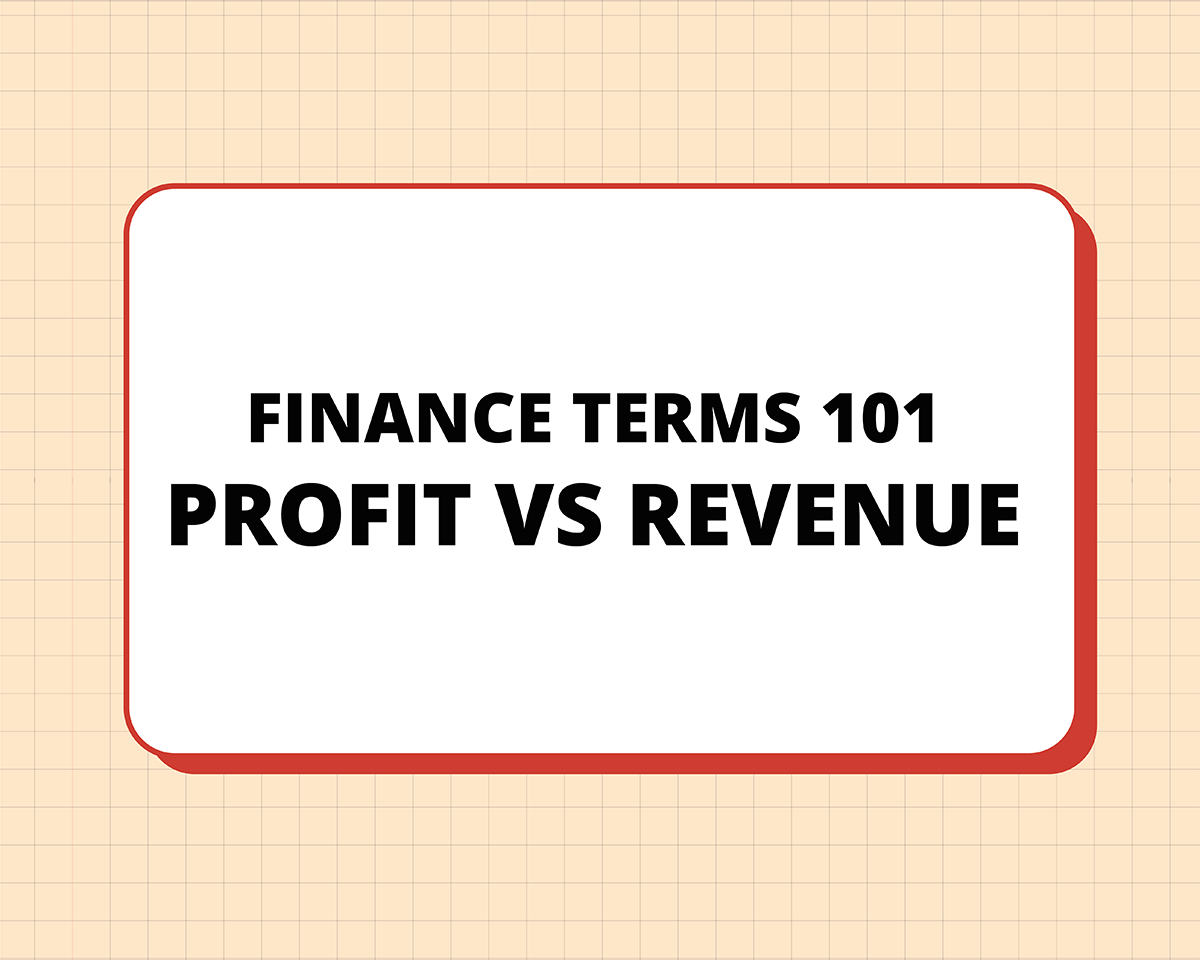 My Cart 0
My Cart 0

Finance 101: Profit vs Revenue
26 Apr 2021
If you’re like me, your head would start spinning the moment finance terms are thrown out in conversations. Unfortunately though, there comes a time when you’ll have to take the finance Panadol if you want to be serious about adulting.
So I’ve taken it upon myself to unravel the definitions of these common finance terms, and explain them to you in the way a finance noob can understand.
As a working adult, there’s a high chance that you have heard your colleagues from finance talk about profit and revenue. And you probably have a vague idea that profit and revenue refer to the financial gains made by the company. But if you were anything like me, you probably had no idea that they do not mean the same thing.
Profit
There are three types of profit that companies generally look at.

On it's own, each type of profit doesn't tell us much beyond what it's meant to. But when placed in comparison to one another, they do paint a picture a better picture of how well the company is managing the business.
Here's how profit is presented on a typical income sheet.

Revenue

Now, you might be wondering what’s the point of calculating revenue, if you have to pay off business expenses anyway?
Think of it this way. Financial statements are like a book that tells the story of how a company is making its money. The size of revenue alone tells analysts and investors the market size of the business, and perhaps its growth potential.
As the story goes, it is possible to have a positive revenue and a negative profit. Let’s say a business makes a $10 million revenue, but balances out to a net profit loss of $2 million. If this were a startup, it's understandable for them to have higher costs at the beginning for product development or marketing purposes. A substantial revenue size will then give clues to then potential growth of the business.
If you think about profit and revenue not only as numbers on a sheet, but in terms of the story they tell about a company, it should help you to better translate the numbers into insights.
Stay tuned for more finance terms coming your way next week!



